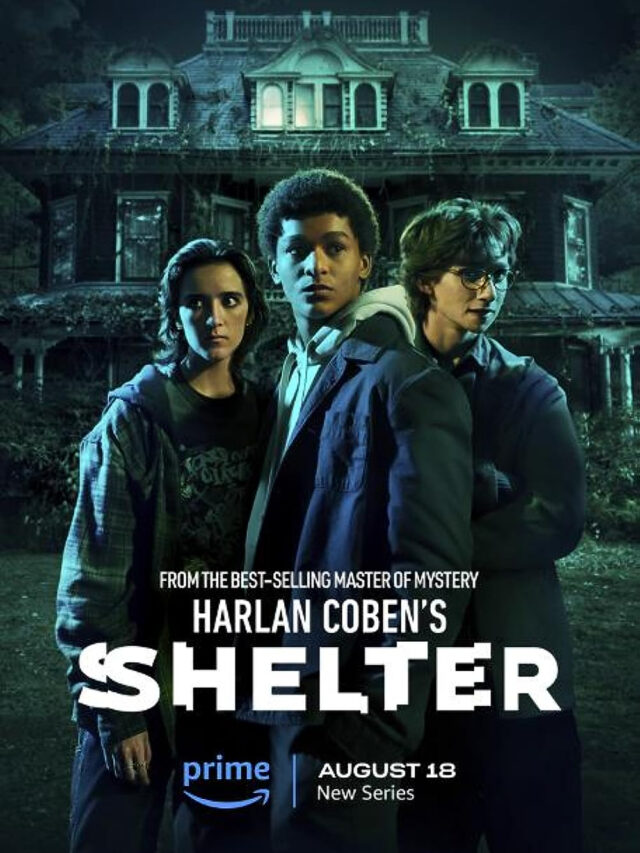Idris Elba, celebrated for his iconic portrayal of detective John Luther, makes a triumphant return in “Luther: The Fallen Sun.” This time, the enigmatic detective’s adventures take center stage in the format of a Netflix movie, generating immense anticipation among fans of the beloved Luther franchise. The burning question on everyone’s mind is whether this cinematic endeavor can live up to the remarkable standards set by the celebrated series. In this comprehensive review, we embark on a thorough exploration of “Luther: The Fallen Sun,” dissecting its storyline, performances, script, direction, technical aspects, and the overarching impact it delivers to audiences.
As we navigate through the intricate facets of this cinematic offering, we will assess its ability to capture the essence of John Luther’s character, its narrative prowess, and its execution of a gripping crime thriller. Join us on this cinematic journey as we evaluate whether “Luther: The Fallen Sun” successfully continues the legacy of one of television’s most compelling detective dramas or if it falls short of the high expectations set by its predecessors.
Luther: The Fallen Sun – Storyline and Premise
In “Luther: The Fallen Sun,” the audience is thrust into the gripping and tumultuous world of the brilliant yet fallen detective, John Luther. The narrative unfolds as Luther stages a daring escape from prison, determined to bring to justice a sadistic serial killer who has plunged London into a state of unrelenting terror and chaos.
At the heart of the film lies Luther’s relentless pursuit of this elusive and malevolent murderer, setting the stage for a high-stakes cat-and-mouse game that will keep viewers on the edge of their seats. As Luther delves deeper into the heart of darkness that shrouds the city, pivotal questions come to the forefront: Can he triumph in his mission to apprehend the killer? Will the relentless pursuit ultimately lead to Luther’s capture, a haunting specter that looms ever closer? And can Luther, a man grappling with his complex moral code, secure his salvation while navigating the treacherous labyrinth of crime and justice?
With a firm focus on delivering an enthralling and suspenseful experience, “Luther: The Fallen Sun” promises to captivate audiences with its high-stakes drama, intricate character dynamics, and the ever-present sense of impending danger. It is within this relentless pursuit of justice that the film’s premise unfolds, setting the stage for a cinematic journey rife with tension, intrigue, and the unrelenting pursuit of truth.
Performances
The performances in “Luther: The Fallen Sun” are a testament to the talent and dedication of its cast. Idris Elba, returning as the indomitable John Luther, once again proves his acting prowess. With effortless grace, Elba shoulders the weight of the entire film, breathing life into Luther in a manner that transcends the surface. This time around, Elba takes Luther to new depths, emphasizing the character’s intellectual prowess. While the film may not delve deeply into character development, Elba’s portrayal remains a highlight, reaffirming why he is synonymous with the role.
A standout in the film is Andy Serkis, who delivers a performance of compelling complexity as the antagonist. Serkis masterfully embodies a character who exudes both suave charm and malevolent cunning. His portrayal leaves audiences simultaneously repulsed and intrigued, adding layers of tension to the film. Serkis seamlessly assumes the role of Luther’s formidable adversary, infusing the narrative with an electric dynamic.
However, the character of the lady cop, portrayed by Cynthia Erivo, poses a narrative challenge. Her transformation from a stoic, unyielding law enforcement officer to a vulnerable figure, grappling with familial pressures, feels somewhat abrupt. A more gradual and nuanced approach to her character development would have allowed for a smoother transition, enhancing the emotional impact of her journey.
The supporting cast, though competent, faces the daunting task of sharing the screen with the commanding performances of Elba and Serkis. While they fulfill their roles capably, they struggle to shine brightly in the shadow of these formidable leads.
In “Luther: The Fallen Sun,” the performances are a mixed bag, with Elba and Serkis delivering standout portrayals that elevate the film, while the supporting cast, though proficient, finds itself overshadowed by their formidable co-stars.
Script, Direction & Technical Aspects
Neil Cross, the mastermind behind the BBC series, returns with a script for “Luther: The Fallen Sun” that successfully incorporates familiar elements while crafting an engaging narrative. One notable aspect is the early revelation of the murderer’s identity, a departure from traditional crime thrillers. Cross’s skill lies in his ability to maintain audience engagement by delving into the motive behind the killings, keeping viewers captivated even after key details are disclosed. This skillful storytelling approach is indeed commendable.
Jamie Payne’s direction effectively complements Cross’s script, ensuring a seamless flow of subplots that sustains the film’s momentum. Despite the film’s extended runtime of over two hours, Payne manages to maintain an engaging pace, skillfully sidestepping noticeable lulls in the narrative. However, it is essential to address a notable concern regarding the film’s conclusion, which raises questions about its adherence to legal principles. This lingering plot hole could have been addressed for a more satisfying conclusion.
Lorne Balfe’s contribution to the film’s music, while serviceable, falls short of elevating the storyline to the same immersive level as the series. The background score lacks the transcendent quality required to fully transport viewers into the world of John Luther. It remains functional but misses the opportunity to enhance the overall viewing experience.
In contrast, Larry Smith’s cinematography emerges as a true highlight. Smith expertly captures a lesser-explored, grittier side of London, showcasing the city’s hidden facets. His lens brings to life the stark contrast between London’s grandeur and the harsh reality of homelessness and abandoned structures, adding depth and authenticity to the film’s visual narrative.
Justine Wright’s editing is deserving of praise for its role in maintaining the film’s tautness and ensuring that viewers remain engrossed throughout the extended runtime. Wright’s expertise shines in her ability to seamlessly weave together the various elements of the story, creating a cohesive and captivating cinematic experience.
Conclusion and Final Thoughts
In conclusion, “Luther: The Fallen Sun” is a captivating addition to the beloved “Luther” franchise. Despite being limited to a two-hour runtime, the film leaves viewers yearning for more of Idris Elba’s brilliant portrayal of John Luther. The open ending raises valid questions about the film’s adherence to legal principles.
While the movie excels in maintaining audience engagement, the character arc of the lady cop could have been more thoughtfully executed to enhance emotional resonance. The supporting cast, although competent, doesn’t manage to shine amid the captivating performances of Elba and Serkis.
Neil Cross’s script adeptly balances revealing the murderer’s identity early on with sustaining the audience’s curiosity about the motive behind the killings. Jamie Payne’s direction ensures a consistently engaging pace, but the ending overlooks certain legal ramifications.
Despite a few shortcomings, Idris Elba’s return as John Luther is a treat to behold. “Luther: The Fallen Sun” is undeniably a must-watch for fans of the franchise, offering a compelling crime thriller that keeps you hooked from start to finish.






























